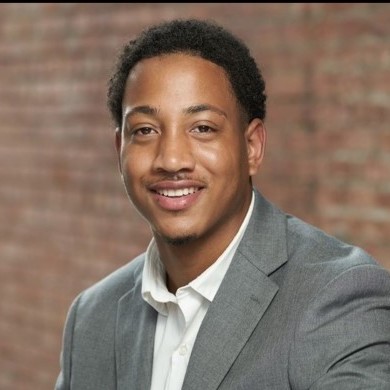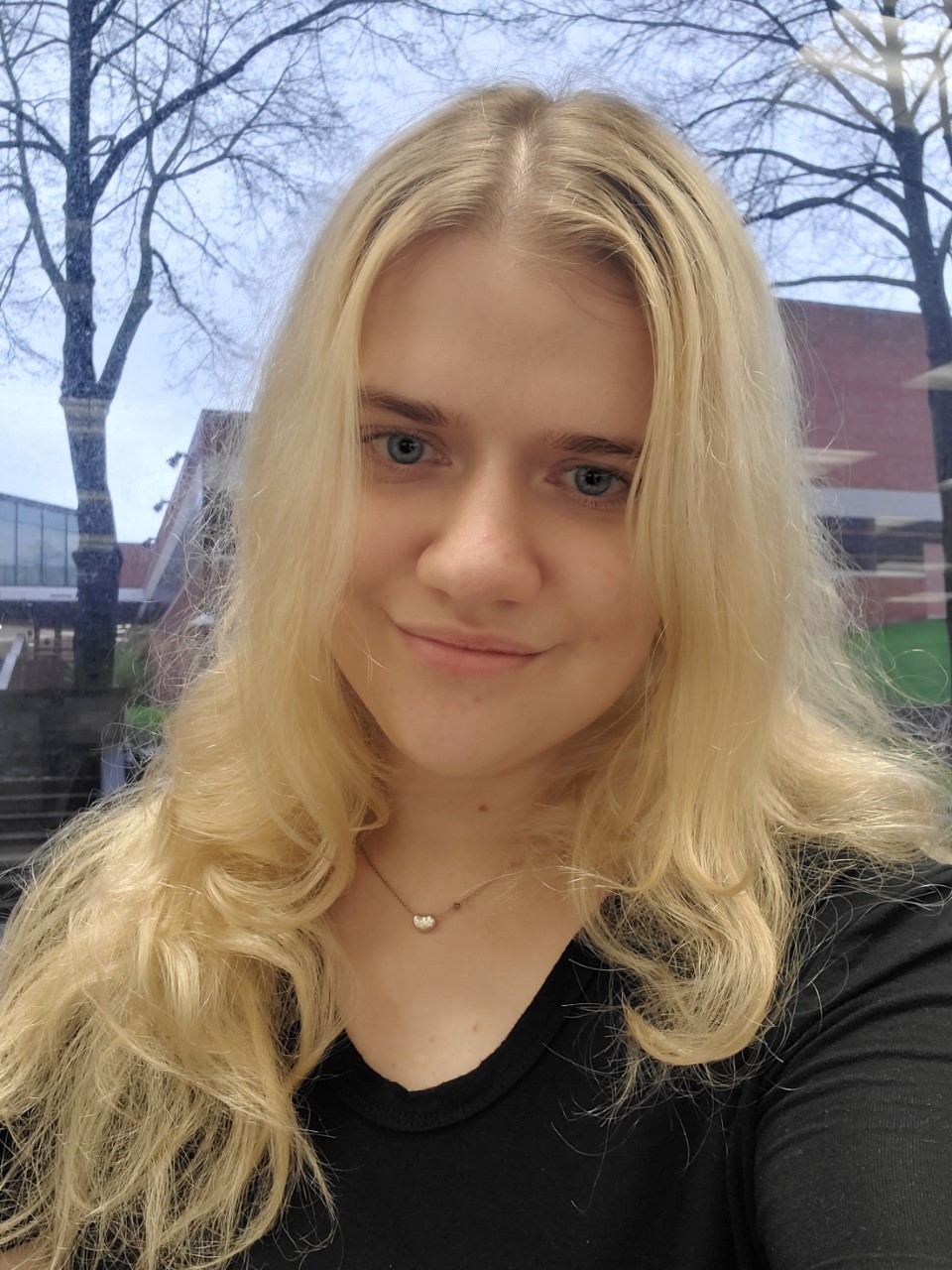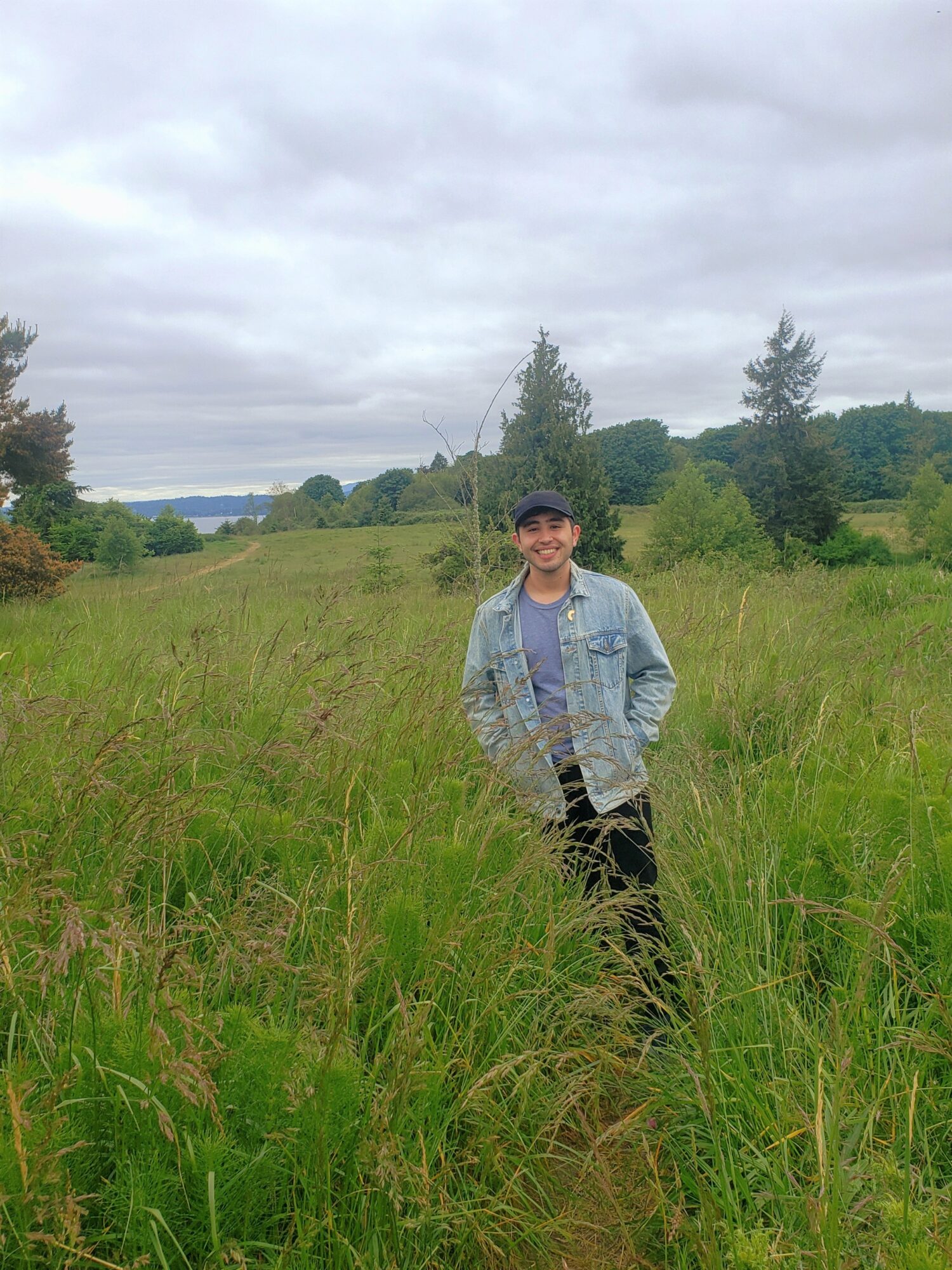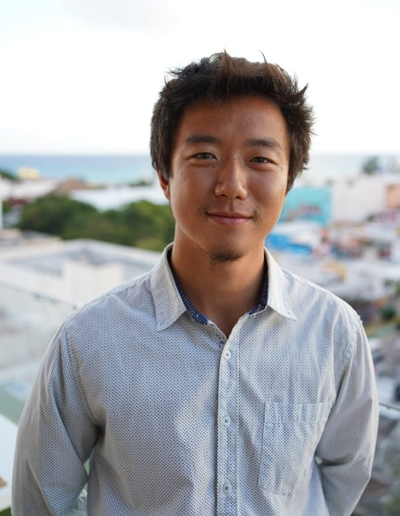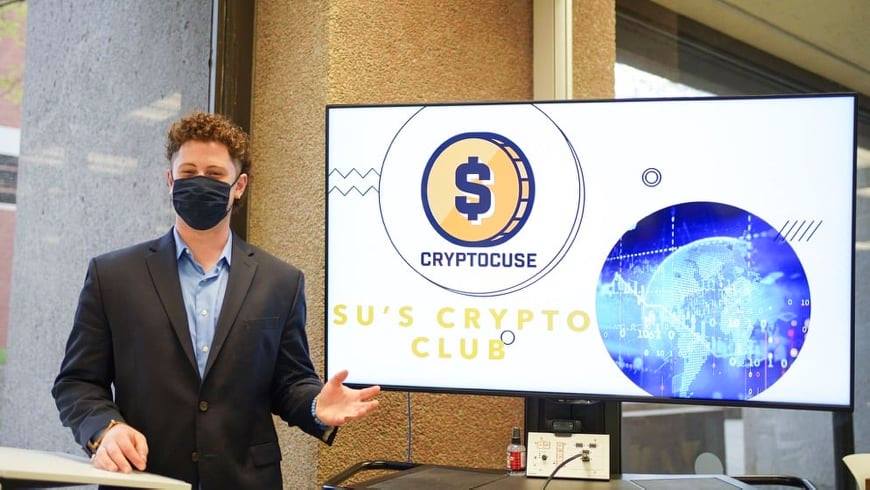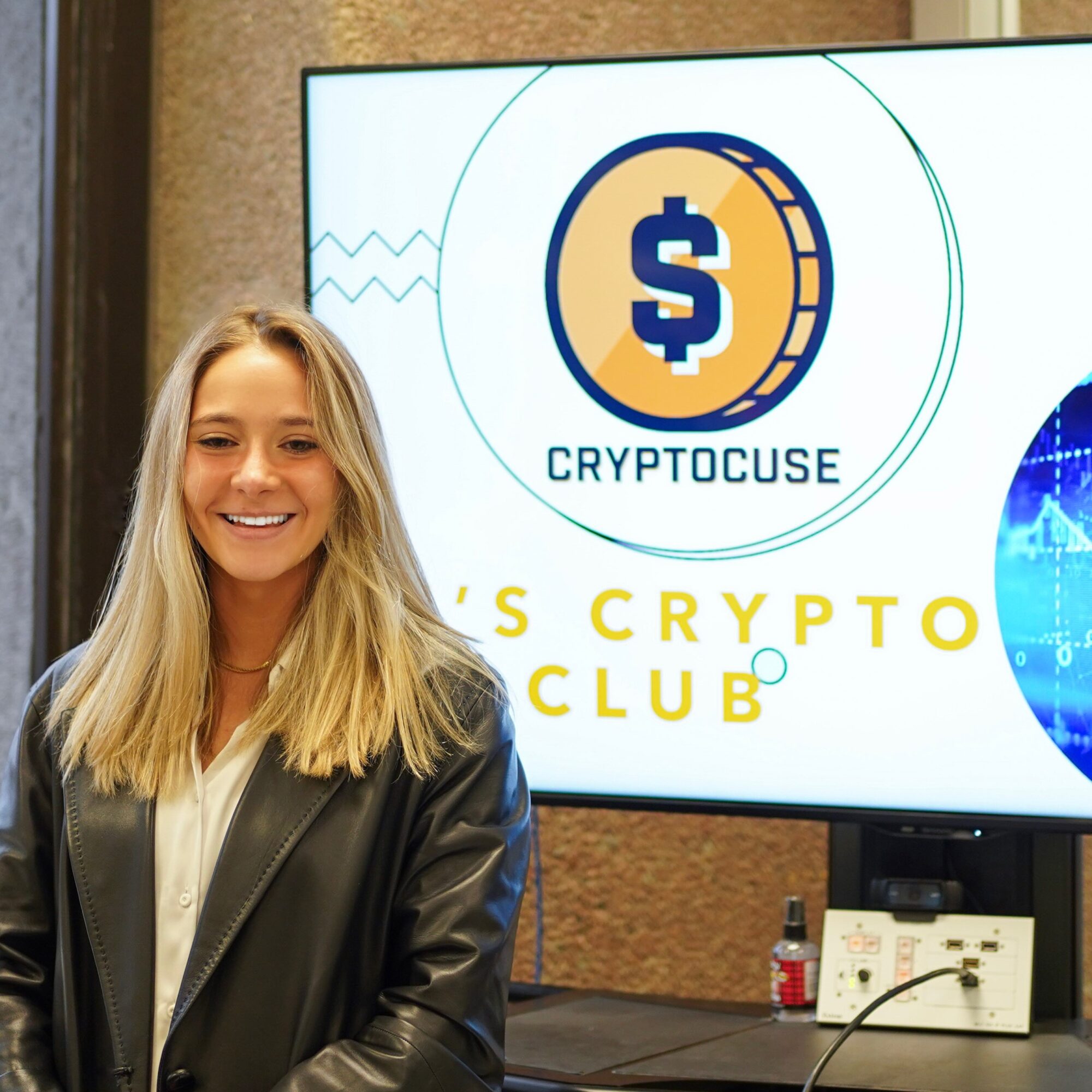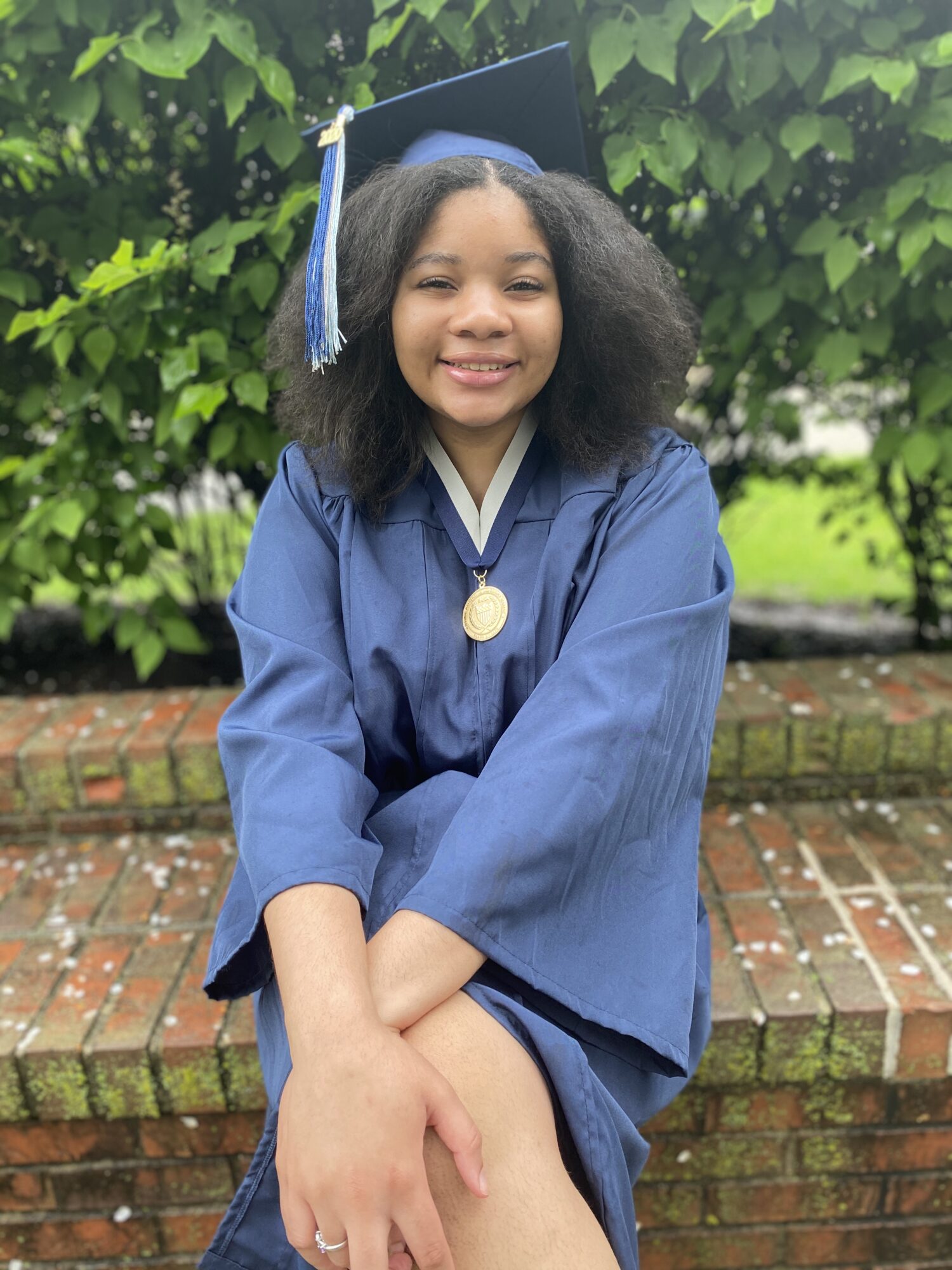
Trinity Coates ’24 has a love for math and chemistry for as long she can remember. Since Coates was about seven years old, she fell in love with math, showing off her multiplication skills to her first-grade teacher. Coates went to Illinois Mathematics and Science Academy (IMSA), a top rated, public, magnet, high school where she was part of a maker’s space working with 3D printers. One of her most exciting projects was making prosthetic hands and donating them to people who needed them.
This passion for making things was what prompted her to join Invent@SU, a summer accelerator program that would give her an opportunity to design, fabricate and get back into a maker’s space.
Coates had no idea what she was going to be inventing when she first came into the program. She was there to contribute her knowledge and skills as a Chemical Engineering student at the College of Engineering and Computer Science. She soon teamed up with a computer engineer and a bioengineer, together, they started their brainstorming process.
After thinking through a few ideas for inventions, Coates and her team decided on Ambiflux, an asthma monitoring and treatment device. At first it seemed a bit intimidating but as they started, they quickly gained traction. By the end of the accelerator program Ambiflux won second place with a prize of $4,500 in the final competition.
Ambiflux uses diagnostic technology to indicate whether your condition is worsening or improving after an asthma attack. A spirometry with a FEV1 unit and pressure sensors are integrated into the device to help detect how well a person can breathe and to detect air pressure and volume of air coming out of the lungs after an asthmatic episode.
This idea was solidified in a 3D printed prototype. Coates explains that the invention also tackled the delivery system because the teams feel medication in most inhalers do not get properly delivered to the lungs because of their design. Ambiflux’s design has a compact and transportable spacer built in which the teams say can help deliver medication to the lungs more effectively.
Coates and her team faced a few difficulties during the design process, such as calibrating the sensors. It was trial and error programming it, but they were successful.
Coates and the team saw a real use to the product and were grateful that the judges did as well.
Although Coates does not have future plans to further develop Ambiflux, she is interested in a few upcoming competitions at the Blackstone LaunchPad at Bird Library.
Coates loves chemical engineering and is considering graduate school as a next step. She feels chemical engineering is a path where she can build an interesting career and make a positive impact on the environment with her knowledge.
Outside of math and chemistry, Coates also plays the guitar and the ukulele. Metal and rock music has been her music of choice lately. Hiking, nature and landscapes really speak to Coates as well. Whether it is photographing it, conserving it or helping it, Coates is ready for the adventure.
Story by LaunchPad Global Fellow Natalie Lui ‘22; photo supplied
